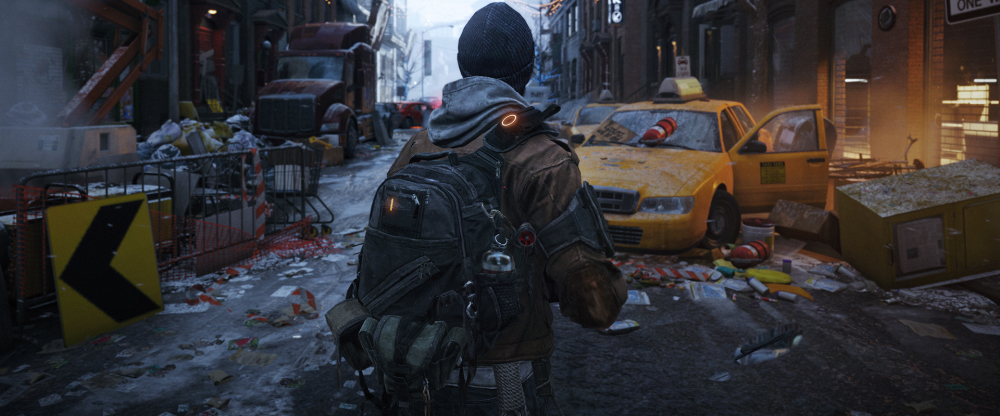This is going to be one of those posts thats going to get linked to quite a bit in future posts. Why? Well, because I get tired of repeating over and over again a brief encapsulation of why I buy as many of a particular thing.
Uncertain Goods
I’ve mentioned this in the past, but Uncertain Goods are items whose future availability cannot be readily assured. It’s not a black and white issue….some items will be more uncertain than others. And, depending on the nature of the apocalypse you are forecasting, all items can be Uncertain Goods. Lemme give some examples…
Dental Floss. Those little plastic boxes with the spool of floss and the cutter? Yeah, those. Are they an Uncertain Good? No..I am virtually confident that tomorrow, next week, next month, and next year I will be able to walk into a Walgreens and buy as much of it as I want.
The more forward thinking of you might say “But, in a nuclear war (or similar event) the availability of just about everything would be affected, therefore all goods are Uncertain Goods.” Strictly speaking, this is true. This is where evidence and history come into play. Best I can tell, we haven’t had a nuclear war lately, nor have we had a global failure of the dental floss crop due to floss weevils. Additionally, I’ve heard nothing about dental floss prohibitions, taxes, confiscations, panic buying, distribution chain failures, and that sort of thing. To my way of thinking, dental floss is not an Uncertain Good. Oh, I stock up on it….but not because I worry about it’s availability, but rather because if I can spend fifty bucks and get a few years worth of the stuff tucked away, that’s one less thing to deal with.
Contrast the dental floss with, say, plutonium. Plutonium is an exceptionally Uncertain Good. I can walk out of my house and get dental floss from a half dozen different places without even needing to drive. Plutonium , on the other hand, is something you really have to make an appointment for. Even in ‘normal’ times your ability to obtain it is challenging. Throw some political or social turmoil in the mix and it gets even harder.
These are, obviously, two extreme examples but I think they make the point. An Uncertain Good is one whose future availability cannot be guessed at. Here are some items that, in my opinion, are Uncertain Goods: prescription meds, hard-to-find car parts, clothing in special-order sizes, odd batteries, certain chemicals or mixtures of chemicals, etc. Basically, if the only way you can obtain something is to special order it off Amazon or pay for it with a credit card, it’s an Uncertain Good. (Note that I said ‘the only way’…the fact that you buy your TP off Amazon to save money doesn’t mean it’s an uncertain good. You could buy TP at your local grocery. If you live in Nowhere, WY and you need a forward mounting bracket for the fusebox in your ’89 Saab you’re pretty much only going to get that through Amazon or some other internet contortion…thus, it’s an Uncertain Good.)
Take me, for example. I wear shoes that are, nominally, EEEEE width. (Yes, I have wide feet. I can walk on snow like a moose.) My only source for shoes is a couple specialty outfits on the internet. Thus, for me, shoes that fit are an Uncertain Good. So, I keep several pair on hand.
Alright, we’ve established what an Uncertain Good is. Your idea of what it is and mine may differ due to our regional differences, but, broadly, we should be on the same page. Now it’s a matter of scale.
Relative Uncertainty
Take my 5E shoes and the plutonium, for example. Both are Uncertain Goods, we’ve established that. Now, which of the two is more likely to be difficult to obtain at a later date? Probably the plutonium, right? So in a priority-based system of acquisition, I’d probably want to score the plutonium before I score another pair of black walking shoes. Both goods are uncertain, but one is likely (IMHO) to be more uncertain than the other.
Quantity
Ok, so we know what Uncertain Goods are, and we know that some Uncertain Goods are more uncertain than others. So why do I need several hundred G3 magazines? Or a dozen ARs?
Both of those items are Uncertain Goods with a history of threatened availability, and a near constant threat of diminished future availability. Or, put into simple terms, they banned ’em before and they want to ban them again.
Okay..so they’re an Uncertain Good, with a definite likelihood of future availability being a problem, but why do you need so many???
I have another 25 years on my meter. We’ve established these Uncertain Goods may become unavailable at any moment. So…if tomorrow I couldn’t call up Cheaper Than Dirt and order more, and what I had in the closet had to last me the rest of my life, would I feel comfortable with that? Well…a lot of stuff can happen in 25 years, so I’d want plenty to cover things like loss, breakage, confiscation, abandonment, theft, trade, gifting, and ‘just in case’. When you look at it in those terms, five magazines for your Beretta 92 when your’re forty years old is not a ‘lifetime supply’. In fact, it’s laughably short-sighted.
The Matt Foley suvivalists (You know, the ones who think all you need to survive the apocalypse is a Mosin Nagant and a vaaaaaaan down by the riverrrrrrr.) are aghast at the notion of spending money, but if your career goals go beyond being a WalMart greeter and complaining about ‘the rich’ full-time, you can afford such things. The secret to being able to afford things like guns designed after World War 2, food that isn’t stored in 2-liter pop bottles, and housing that doesn’t have a license plate holder, is to complain less about people who have more money than you and start doing what it takes to become someone who has more money than you.
The paradigm I use is: if I could not get any more of these [items] tomorrow, would I be comfortable with the amount I currently have. I’ts not any more complicated than that.. When I buy supplies and items to enhance my survivability, I’m thinking on the long term. Even a ‘personal’ EOTWAWKI like a job loss or health issue would benefit from such planning… its one less thing to worry about.
Obviously, there will be a couple factors to consider – cost, storage, expiration, opportunity cost, etc. I wouldn’t buy a lifetime supply of Toyota Tacomas because of cost, I wouldn’t buy a lifetime supply of drinking water because of storage issues, and I wouldn’t buy a lifetime supply of bananas because of expiration. But, something like, say, toothpaste? Dental floss? MagLites? Blankets? Lantern wicks? I’d have no problem with several dozen in storage.
So there you have it. Next time you want to comment and say “You have one Blastomatic 500, why do you need fifteen magazines for it” you’ll have your answer. And maybe the rubric of “if I could not get any more of these [items] tomorrow, would I be comfortable with the amount I currently have” might prove useful to you. But, regardless, those are the reasons and logic behind why I buy as much as I do of some items.


